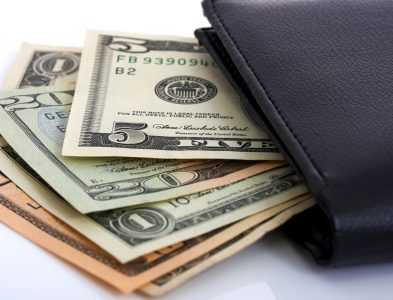Expenses In Bankruptcy
:
Filed under: Debt
 One of the biggest benefits of filing bankruptcy is the automatic stay that goes into effect as soon as the case is filed. It means that your creditors (those you owe a debt) are not allowed to keep asking you for money. However, there are important expenses you need to consider.
One of the biggest benefits of filing bankruptcy is the automatic stay that goes into effect as soon as the case is filed. It means that your creditors (those you owe a debt) are not allowed to keep asking you for money. However, there are important expenses you need to consider.
Bankruptcy Fees
There are two types of expenses that you will have to pay: 1. Court–ordered fees; and 2. Non–dischargeable debts. Some of the debts you may owe will have a court–ordered fee associated with them. For example, if you have a judgment against you, and you file for bankruptcy, the court–ordered fee will still be owed to the judgment creditor. The bankruptcy trustee is usually responsible for collecting the court–ordered fees. If the trustee collects any court–ordered fees, the trustee will pay the fees to the court. There are also non-dischargeable debts that do not have court–ordered fees associated with them. For example, credit cards, medical bills, and most student loans do not have court–ordered fees.
Post-Bankruptcy Expenses
Just because you don’t have to pay your debts after filing bankruptcy, you’ll still have some expenses to pay going forward. For example, you will still have your essential living expenses. These include things like:
- Rent or mortgage payments
- Utility bills
- Health insurance premiums
- Food
- Clothing
- Transportation expenses (car payments, etc.)
- Household maintenance (lawn care, home repair, etc.)
- Child support payments
- Student loans
- Credit card payments
When you are trying to determine what your living expenses will be, try to be realistic. Don’t cut corners too much. You don’t want to risk having to file bankruptcy again down the road.
The way to avoid having to pay these debts if you file bankruptcy is to have a good Dallas bankruptcy lawyer who can determine your eligibility for bankruptcy and help you select the type that is best for you.







